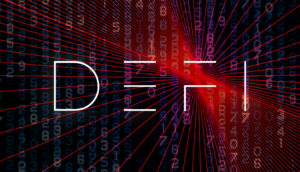On September 29th of 2017, a new distributed ledger system called Cardano was launched, with its native token designated as ADA. Many cryptocurrency investors have added ADA to their portfolio because Cardano is a project with a rather promising roadmap. The Cardano project aims to outshine competitor cryptocurrencies for distributed computing, such as Ethereum, by providing a smart contract development platform, representative tokens, and the basic Cardano Settlement Layer (CSL).
Cardano: The Third Generation Distributed Ledger Network
Cardano is a cryptocurrency that has digital asset enthusiasts and investors curious, as this new distributed ledger platform offers an array of benefits. Cardano (ADA) is, at the time of writing in early 2021, the sixth largest cryptocurrency by market capitalization. There are many reasons why Cardano has risen so high among the 4100+ cryptocurrencies in existence.
Investors are interested in Cardano because of its development team, ‘Input_Output Hong Kong’ (IOHK) — which is led by Charles Hoskinson, the co-founder of Ethereum (ETH), Bitshares (BTS), and Ethereum Classic (ETC). Hoskinson, a well-respected developer and cryptographer, led an international team of researchers with a diverse array of specializations, with the goal of developing Cardano into a world-beating platform for distirubted computing and value transfer. To this end, Cardano is the first cryptocurrency to be developed according to the scientific peer review process.
“Why is anybody worthy of their positions in the market cap?” Hoskinson asks while being interviewed just recently.
“Bitcoin is advertised as a payment system and a means of exchange, and then everybody who has ever tried to use it for that, it’s been a miserable failure — They usually stop taking it, or they find ways to take cash, and through a creative structure like what Bitpay has done — Ethereum claims to be a world computer, but then Cryptokitties breaks it.”
Cardano’s Consensus Rules Reward Stakeholders
Another benefit of those who are invested in ADA, is the decentralized currency’s consensus algorithm Proof-of-Stake (PoS) — a cryptocurrency mechanism that rewards those who have a stake in the coin on a regular basis. Newly minted ADA are created via PoS and this fuels a ‘governance-like’ decision making process, achieved through Cardano’s Ouroboros algorithm.
ADA’s consensus is based on_ coin-holder voting whereby “slot leaders” generate new blocks for the Cardano chain. The Cardano process not only incentivizes existing ADA holders, but also can “bring stakeholders closer to the operations and maintenance of their cryptocurrency,” explains the IOHK white paper.
“‘Ouroboros’, is the first blockchain protocol based on Proof of Stake with rigorous security guarantees,” IOHK further emphasizes.
“We establish security properties for the protocol comparable to those achieved by the Bitcoin blockchain protocol — As the protocol provides a “Proof_of_Stake” blockchain discipline, it offers qualitative efficiency advantages over blockchains based on proof of physical resources. We also present a novel reward mechanism for incentivizing Proof_of_Stake protocols and we prove that, given this mechanism, honest behavior is an approximate Nash equilibrium, thus neutralizing attacks such as selfish mining.”
Cardano’s Market Performance Over Eight Months Remains Strong
Cardano ADA’s market performance has been exponential since it launched on publicly available cryptocurrency exchanges. As we mentioned above, ADA is the sixth largest digital asset by valuation, with a market capitalization _ over $10.5 Bn at the time of publication. Today the currency also holds the 9th highest trading volume out of all the cryptocurrencies in existence. Furthermore, _ roughly $2 -3 Mn USD worth of ADA trades on a 24-hour basis ,which outshines quite a few other cryptocurrencies.
Investors believe Cardano investment is a great choice for your portfolio because the currency is very inexpensive at the moment at Ƀ 0.00001064 or $0.34 cents per ADA. This means the nascent ADA market and development has a long road ahead, as its still very early but could be a lucrative portfolio choice like Ethereum was back in 2014.



